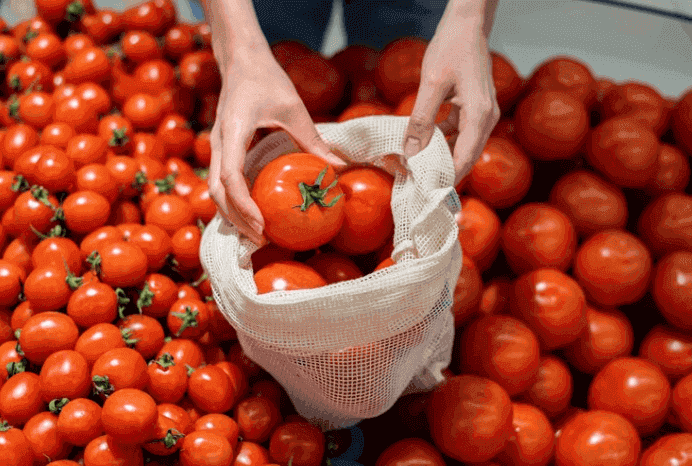
Dry Farmed Tomatoes: Cultivation Tips and Nutritional Benefits
If you’re a tomato enthusiast or a gardening aficionado, you’re in for a treat! Dry farmed tomatoes are nature’s gift to those who appreciate the rich, intense flavor of this beloved fruit. In this article, we’ll explore dry farmed tomatoes, sharing valuable cultivation tips and their incredible nutritional benefits. By the end of this article, you’ll be equipped with the knowledge and inspiration to grow your own delicious dry farmed tomatoes.
Understanding Dry Farming
Dry farming, a sustainable and eco-friendly agricultural practice, is a method of cultivating crops without supplemental irrigation. This technique may seem counterintuitive, but it results in tomatoes with exceptional flavor and nutritional density. Here’s how it works:
1. Soil Preparation
The key to successful dry farming is soil preparation. Start by tilling the soil deeply to create a reservoir of moisture within the root zone. This ensures that the tomatoes have access to water during dry spells.
2. Planting Techniques
Select tomato varieties known for their drought tolerance. Plant them during the cooler months to reduce water stress. Proper spacing is crucial to allow each plant to access the available moisture.
3. Mulching
Mulching helps retain soil moisture and keeps the soil temperature consistent. Organic mulch, like straw or compost, is ideal for dry farming.
4. Water Management
Water sparingly during the initial stages of growth to encourage deep root development. Once the plants are established, withhold irrigation completely, forcing the roots to seek moisture deeper in the soil.
Benefits of Dry Farmed Tomatoes
Now that you understand the basics of dry farming, let’s delve into the exceptional benefits of growing and consuming dry farmed tomatoes.
1. Enhanced Flavor
Dry farmed tomatoes are renowned for their robust and concentrated flavor. Without excess water diluting their taste, these tomatoes offer a burst of rich, savory goodness in every bite. They’re the secret behind the best homemade sauces, salads, and caprese dishes.
2. Nutrient Density
Dry farming concentrates nutrients in the tomatoes, making them more nutrient-dense than conventionally grown counterparts. They’re packed with essential vitamins, minerals, and antioxidants, including lycopene, known for its potential health benefits.
3. Sustainability
Dry farming is an eco-conscious practice. By reducing the demand for irrigation, it conserves water resources and lowers the carbon footprint of tomato cultivation. Choosing to grow dry farmed tomatoes is a step towards a more sustainable future.
4. Resilience
Dry farmed tomatoes are hardy and resilient plants. They can withstand dry spells and are less susceptible to certain diseases that thrive in moist conditions. This resilience makes them a reliable addition to your garden.
Cultivation Tips for Success
Now that you’re eager to try your hand at dry farming tomatoes, let’s explore some expert tips to ensure a thriving harvest.
1. Variety Selection
Choose tomato varieties that are well-suited for dry farming. Some excellent options include San Marzano, Early Girl, and Roma tomatoes. These varieties have natural drought resistance.
2. Soil Enrichment
Enrich your soil with compost or organic matter before planting. Well-nourished soil provides the essential nutrients your tomato plants need for robust growth.
3. Proper Spacing
Give your tomato plants adequate space, typically about 24-36 inches apart. To prevent overcrowding and facilitate adequate air circulation, you can space your tomato plants appropriately.
4. Consistent Mulching
Mulch the soil around your tomato plants to retain moisture. Renew the mulch layer as needed to maintain an optimal moisture level.
5. Prudent Pruning
Regularly prune your tomato plants to remove excess foliage and promote air circulation. This helps prevent fungal diseases that can be problematic in dry farming.
6. Patience Pays Off
Dry farming requires patience. During dry spells, your tomato plants may appear stressed, but resist the urge to water them. They will adapt and continue to produce flavorful fruit.
Conclusion
Dry farming tomatoes is a rewarding endeavor that yields intensely flavorful and nutrient-rich fruits. By following these cultivation tips and embracing the benefits of dry farmed tomatoes, you’ll embark on a journey of culinary delight and sustainable gardening.
So, roll up your sleeves, get your hands in the soil, and enjoy the taste of your homegrown, dry farmed tomatoes. Your taste buds, and indeed the environment, will wholeheartedly show their appreciation.





